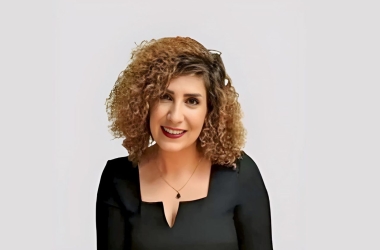Wittenborg Graduate Discusses Gender Barriers in Iran’s Construction Industry

Aliyeh Bahrami’s Thesis Inspired by Own Experience as Engineer
While working as an engineer in the Iranian civil construction industry for over 10 years, Wittenborg graduate Aliyeh Bahrami had to face many challenges related to gender inequality and met other women who struggled with the same issues. These experiences motivated her to write her master’s thesis, titled ‘Investigating Gender Equality Barriers in Iran’s Construction Industry and Their Impact on Female Employees’ Performance: Three Iranian Construction Company Case Studies’.
Bahrami, who completed an MBA in International Management, comments that by moving to the Netherlands she was able to see what it is like to live in an egalitarian society. She believes that Dutch society and government not only promote gender equality between men and women but also respect other genders. “I wanted to share my experiences and those of my female colleagues to highlight the root causes of these barriers in a country with a unique culture and social beliefs,” the graduate points out.
To gather the data for her study, Bahrami conducted interviews with 16 people, out of which eight were females and eight were males. Most of them were her ex-colleagues from the three construction companies she used as case studies. “Some participants were not my direct colleagues, but I reached out to them through my network within these companies. It was a delicate subject, especially for the women who are part of my culture, so I used my network to convince them to participate and share their experiences.”
The research focused on two main topics: cultural-related barriers, including religious beliefs, and firm-related barriers such as organisational policies and leadership practices. The interviews covered areas like work-life balance, work environment, equal pay and promotion status. Moreover, follow-up questions were asked in order to shed light on the impact of these factors and barriers on women’s performance.
“I also explored other topics including job satisfaction, job skills, innovation and productivity. I asked female interviewees about their experiences and asked male interviewees about how they perceived the experiences of their female colleagues. I did this to understand the male perspective of the difficulties women face, identify any biases and gain a broader perspective,” she explains.
The study finds that the barriers faced by women in the Iranian construction industry negatively impact their job satisfaction, productivity, innovation and job skills. However, Iranian women have learned to fight these barriers.
“Since these women are often not taken seriously by managers or leaders, they excel by enhancing skills like resilience, flexibility and technical expertise. They often work twice as hard as their male colleagues to prove themselves. This isn’t always healthy, but it’s necessary for women to succeed in a male-dominated industry. They push themselves to be better than their male colleagues to gain recognition from their managers and leaders,” Bahrami underlines.
According to her, women are becoming increasingly more present in the Iranian construction industry. This progress is due to the expansion of women's education in the country and their entry into male-dominated fields.
“Over the past 10 years, the number of women in this industry has grown. When I started, I was the only woman doing this job, but now there are at least five or six women I know in similar roles. As an Iranian female, I can say that we have learned how to make opportunities out of limitations. This change shows that despite societal pressures, Iran is moving forward. The advancement of technology has also played a role in changing cultural views and reducing male dominance. Women have been very influential in this progress,” Bahrami concludes.
The graduate highlights that she recently got hired as a junior project manager in the construction department of a Dutch company. “I'm excited about this opportunity because it aligns with my experience and skills. My plan is to work for a while in this role, and after gaining more experience, aim for higher positions.”
WUP 13/08/2024
by Ulisses Sawczuk
©WUAS Press